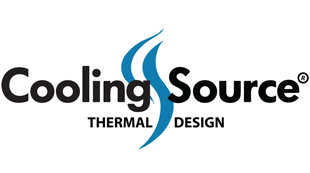Transport
We provide thermal design solutions for the Transport industry such as:
- Solar Energy / Inverters
- Wind Turbines
- Smart metering
Fully equipped lab
Of course, Cooling Source has state-of-the-art tools and machines for creating and designing the best Thermal Design solutions; we have a fully equipped lab at your disposition. For examples:
Airflow bench test, Temperatures distributions measurements, Data acquisition equipment, Cold Plates leak test, and Pressure test.
Inspection
Cooling Source inspects all incoming materials before production begins. Our engineers create manufacturing drawings for every operation. We consistently conduct strict inspections on all the manufacturing processes. Therefore, it ensures we maintain acceptable part quality. Once the parts are complete, our Quality control engineers will conduct a 100% inspection using various high precision equipment and document the results.
Quality Control
Cooling Source will meet or exceed all Customers and other applicable requirements. Clearly, we will strive to exceed customer expectations, therefore engaging and challenging our talented personnel to continually improve each process and system.
Top management shall ensure the quality policy:
- Is appropriate to the purpose of CSI
- Includes a commitment to comply with requirements and continually improve the effectiveness of the quality management system
- Provides a framework for establishing and reviewing quality objectives.
- Clear communication within the company.
- We continuously review suitability.
Heatsinks play a significant role in the transport industry, where they are utilized to manage heat dissipation in various transportation systems and vehicles. Heat management is crucial to ensure the optimal performance and reliability of components and systems, especially in applications that involve high power, compact designs, and demanding operating conditions. Here are some examples of heatsink applications in the transport industry:
- Automotive Industry: Heatsinks are extensively used in vehicles to manage heat generated by electronic components. Modern cars incorporate a wide range of electronic systems, including engine control units (ECUs), infotainment systems, power electronics for electric vehicles (EVs), and advanced driver-assistance systems (ADAS). Heatsinks are integrated into these systems to dissipate heat and prevent overheating, ensuring reliable operation and longevity of the electronic components.
- Electric Vehicles (EVs): Heatsinks are crucial in EVs due to the presence of high-power components such as inverters, battery management systems, and electric motors. These components generate significant amounts of heat during operation. Heatsinks are used to extract and dissipate the heat, maintaining the efficiency and performance of the EV’s powertrain. They are often incorporated into the inverters and motor controllers to cool down the power electronics and prevent thermal issues.
- Aviation Industry: In aircraft, heatsinks are employed to manage heat dissipation in avionics systems, navigation equipment, and other electronic components. These systems are essential for flight control, communication, and monitoring. The compact and enclosed environments within aircraft can cause temperature rise, and heatsinks are used to extract heat and maintain the optimal temperature range for reliable operation of critical avionics.
- Railway Systems: Heatsinks find applications in railway systems for heat management in various electronic systems. These include signaling and control systems, communication systems, traction inverters, and braking systems. Heat generated by these systems needs to be effectively dissipated to prevent overheating, maintain performance, and ensure safe and reliable operation of the railway systems.
- Marine and Shipbuilding: In marine applications, heatsinks are employed to manage heat generated by various electronic systems, such as propulsion control units, navigation systems, communication equipment, and power distribution systems. Effective heat dissipation is critical in marine environments to prevent system failures and maintain the integrity of electronic components.
In summary, heatsinks are essential in the transport industry to manage heat dissipation in electronic systems and components. They help to ensure the reliable and efficient operation of various transportation systems, including automobiles, electric vehicles, aircraft, railway systems, and marine applications. By effectively dissipating heat, heatsinks contribute to improved performance, longevity, and safety in the transport sector.
Engineering Support
Briefly, as part of design work, our engineers apply advanced 3D modeling. Also, we are using cutting-edge CFD tools to optimize your heat transfer project. In addition, we provide our customers a complete cooling solution to meet specific requirements in a timely and cost-effective manner.
Also, you can count on our Mechanical Engineers to assist with design change and reduce manufacturing costs.
Our fully equipped lab is available to valid your designs, testing, and inspect.
CSI team can help you meet tight schedule requirements while allowing you to focus on your business’s core competencies.
Also, we stand by, ready to support you from concept to production globally.
We ensure secure facilities, traceability, and document control.
Call or e-mail us today to see what your options are. We feel confident that you will love our products, competitiveness, engineering support, and customer service during the sale and afterward



